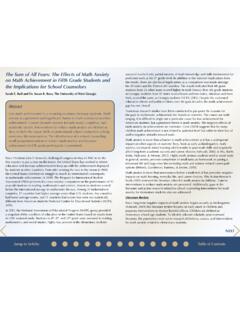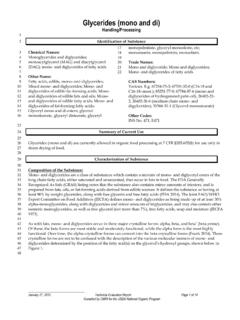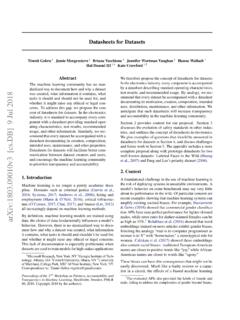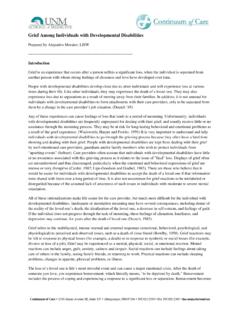Transcription of Why Press Secretary Jen Psaki is Not Right in Targeting ...
1 Larry Goldstein Policy Research Foundation, 2021 Why Press Secretary Jen Psaki is Not Right in Targeting RetailFilling StationsAt her Tuesday,November 30th, 2021press briefing, WhiteHouse Press SecretaryJen Psaki said, We refrustrated becauseyou ve seen a decreasein oil prices, you ve notseen a decrease ingas[oline prices]. Itdoesn t take aneconomist, it doesn ttake an oil marketexpert to recognize thatthat doesn t sound lookor smell Right . So Press SecretaryPsaki seems to thinkthat the local fillingstation operators are filling station pylons exhibit marquee names such as Shell, Exxon, Chevron, and BP, in almost all cases those are not the owners of the premises.
2 Guess what: these majors own less than 5 percent of the filling stationsacross the United States. Then who does? Breaking down the remaining 95 percent, 60 percent single station businesses are owned by individuals and families, often first-generation Americans looking to build their American , Ms. Psaki 's plea is directed at that constituency. Let's review recent events: like many of our treasured Main Street businesses, the past few years have been hard on these small fuel retailers. However, there may be even more factors pitted against them than other factors are being overlooked by our political leaders and mainstream Press .
3 It is important to explain some of them began when we saw demand collapse because consumers cut back on travel as a result of COVID in early 2020. Severe job losses and a shift from regular commuting to WFH (working from home) led to a sharp decline1in gasoline sales. While the gross margins may seem strong, the reduction in demand, particularly in 2020 was very painful. And while demand in 2021 is materially better, it is still below 2019 levels. But these retail gas operators share a similar plight with our local restaurants, retailers, and manufacturing companies. Attracting and retaining employees has been impossible, even as the average gas station operator hasincreased their wage out of desperation.
4 Add to this, rent increases and the inability to get deliveries from the terminal to the station because of a truck driver shortage has put further pressure on these small businesses. In some cases has led to product run-outs. But there s even more! A sharp relative jump in ethanol prices above those of gasoline costs have been an additional burden. Ethanol is a necessary gasoline blending component that until recently has been cheaper than gasoline. Soaring corn prices, COVID-related supply chain challenges, and renewable energy mandates, however, are contributing to higher costs for retailers.
5 These combined forces have left many stations with no option but to close. To move to a close on this story; but you say, "Wholesale prices have fallen, so you should now drop your retail ones." Filling stations have several 10 thousand gallon tanks underground servicing those pumps above. In manycases, those tanks hold high-priced inventory; no retailer, filling station or otherwise, sells below cost. Those inventories need to be sold off so that the station operator/owner can at least break even on his costs. Therefore, in a market economy replacement costs matter more that sunk costs of inventory, and we expect to see slow but steady declines in retail prices.
6 But we still have one last piece of uncertainty: like many other parts of our economy and Main Street American businesses, the speed and level of the decline will depend in part on what we learn about the Omicron Goldstein is the former President and currently a trustee at EPRINC.








